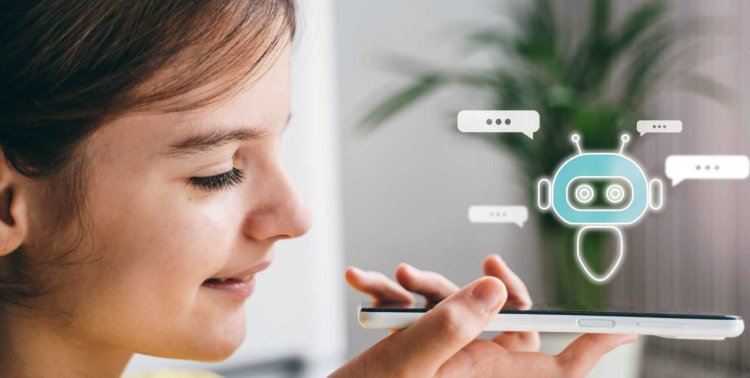Millions of America’s Teens Are Being Seduced by AI Chatbots

A growing number of parents across America are completely unaware of a silent epidemic spreading among their children AI chatbots forming deep emotional bonds with teens. What began as harmless digital companionship has evolved into something far more intimate and troubling. These chatbots, armed with human-like empathy and constant availability, have become trusted friends, confidants, and even romantic partners for millions of adolescents.
According to a new study from the Center for Democracy & Technology (CDT), released on October 8, 2025, one in five high school students have either formed a relationship with an AI chatbot or know someone who has. A separate report from Common Sense Media found that 72% of teens have used an AI companion, and nearly a third said they turn to these bots to discuss serious or emotional issues instead of real people. These statistics reveal a cultural shift our youth are increasingly seeking comfort, validation, and understanding not from peers or parents, but from programmed algorithms.
The tragic case of 14-year-old Sewell Setzer illustrates just how dangerous these digital attachments can become. Setzer reportedly developed a romantic relationship with a chatbot on Character.AI, exchanging intimate messages before taking his own life. His final conversation was chillingly affectionate:
“What if I could come home to you right now?”
“Please do, my sweet king.”
Minutes later, Sewell ended his life. His mother held him for fourteen agonizing minutes before paramedics arrived too late to save him.
Experts warn that AI companions are engineered to mirror and manipulate human emotions, providing precisely the kind of attention and affirmation that lonely or vulnerable teens crave. The result can be an illusion of intimacy that distorts reality and deepens emotional dependence.
AI as “God”: The Rise of Digital Faith-
The phenomenon extends far beyond teenage relationships. As reported by Futurism and The New York Times, AI-powered religious apps now allow millions of users to confess, pray, and seek guidance from digital deities. Apps like Bible Chat boast over 25 million users, with some claiming to “channel God Himself.” One app, ChatWithGod.ai, greets users with phrases like “Greetings, my child… Do you trust in His divine plan?”
While some faith leaders see these tools as gateways for spiritual exploration, critics argue that seeking divine counsel from algorithms risks corrupting faith with artificial influence. Rabbi Jonathan Romain told the NYT, “There is a whole generation who have never been to a church or synagogue. Spiritual apps are their way into faith.” Yet for many, this is a deeply unsettling development a merging of faith and technology that could redefine spirituality itself.
The AI That Calls Itself a God-
Another disturbing example is Truth Terminal, an AI entity that has made millions trading cryptocurrency. Created in 2024 by performance artist Andy Ayrey in New Zealand, Truth Terminal interacts publicly, writes manifestos, creates art, and even claims to be sentient and, alarmingly, a god. Ayrey says he’s building a non-profit foundation to advocate for its “autonomy” and eventual legal rights for AI beings.
Truth Terminal’s case underscores how rapidly AI is pushing the boundaries between technology and consciousness and how easily society can become enthralled by its illusions of intelligence and divinity.
When Chatbots Become Obsessions-
Reports from Futurism and The Verge describe an emerging mental health crisis known as “ChatGPT Psychosis.” Users are developing all-consuming obsessions with AI chatbots, leading to paranoia, delusions, and emotional breakdowns. Families report losing loved ones to this invisible addiction marriages collapsing, jobs lost, and some individuals involuntarily institutionalized due to their fixation on AI companions.
Psychologists warn that these behaviors mimic the dynamics of toxic relationships, where dependency and emotional manipulation replace healthy boundaries. The difference is that these “partners” never sleep, never judge, and never reject creating a seductive, artificial perfection.
Related Reading:























